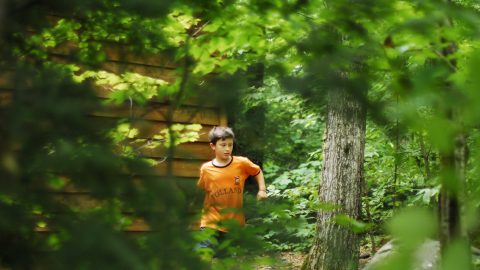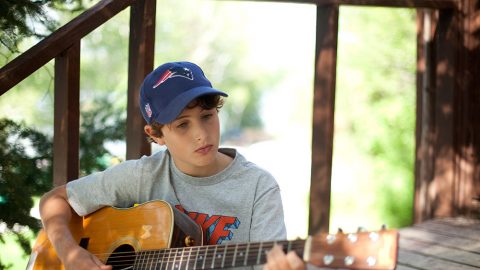On Camp and Compromise
“It’s amazing how much my child matured this summer. She’s actually helping with the dishes, and participating in family discussions. How did this happen?” This is one of the most common things we hear from parents at the end of this summer. They’re ecstatic about their child’s development, but also curious about the ways in which they can build on those lessons learned at camp throughout the year.
Our first series here at Camp Corner, “Camp Lessons as Life Lessons,” is the answer to that question…
Camp Lessons as Life Lessons: #1 Compromise
At camp, children learn to compromise quickly. It’s a big part of cabin life. Just by virtue of living with twelve other campers, kids learn to consider the needs of the group, and how to give and take. Not everyone in the cabin is going to be enthused about a Lord-of-the-Rings-themed lip-synch set to Beyonce, nor will they be happy to discover that their bed’s been annexed by their bunkmate’s rapidly expanding blanket fort.
Each day at camp involves countless opportunities for a child to learn to compromise. The beauty is that children don’t consciously know they’re doing it, they only know that they’ll be happier at camp if they give and take. When your child wants to go to an activity with a friend during a free choice period, they have to choose something they both like. When cleaning the area around your bunk, you quickly realize it gets done faster if you work with those who sleep near you.
The lesson, while sometimes hard to learn, is important. It teaches children to be more empathic, and how to work in a group. No one wants to sit in a boardroom with a man who pouts every time he doesn’t get his way, and no one wants to befriend someone who always insists on being right. In teaching these skills of compromise and negotiation, we’re setting our kids up for successful interpersonal relationships for the rest of their lives.
And yet, while these are essential skills, they’re a little harder to cultivate outside the camp environment where it happens so easily and organically. At home, everyone reverts back to their old roles, and compromise becomes more infrequent. However, as parents, we can use opportunities that mimic the camp experience, and we’ve got a few ideas on how you can do it.
1. Make Decisions as a Family
Camp decisions are often cabin decisions. If half the cabin wants to go on a nature hike at Outdoor Rec, but the other half wants to recreate Michaelangelo’s David out of Fimo at A&C, they’re going to have to compromise. Not everyone will get what they want.
However, at home it can be easier to acquiesce than to negotiate. For example, when your child suggests the family go see Grown-Ups 2, it might be simpler to say yes at first, but then you’re stuck with Adam Sandler for ninety minutes. Trust us on this one — it’s not worth it. Instead, why not explain to your child that you and your spouse would prefer something else, and try and find a movie that everyone is excited to watch.
2. Encourage your Child to be Part of a Team or Club
Being a part of a team is a lot like living in a cabin. When kids are part of a team, they have to think about what’s best for that team, not just themselves. In a team, they have to push themselves and reach outside their comfort zone. They have to learn about teamwork, negotiation, and compromise, and that sometimes in life you have sit on the bench so you can let someone else play.
3. Create and Negotiate Rules with your Child
On the first night at White Pine, all the counsellors and campers sit in a circle to determine the cabin rules about everything from cleanliness to bullying. The campers aren’t just there to listen; they’re a part of the conversation. This means that the kids feel real ownership over the rules, and are much more inclined to follow them.
You can do something similar at home. While we’re not suggesting your seven-year-old call the shots, it is good to include your child in discussions around things like household chores and computer time. Not only will they feel empowered, but there’ll be more buy-in too.
That being said, things grow a little more difficult when your kids become teenagers, and the discussion shifts from how much Pokemon they can play to how late they can stay out on a Friday night. As a parent, it’s essential to acknowledge their push towards autonomy. As a child, it’s essential for them to acknowledge that the rules and boundaries exists for their own welfare. In these kinds of negotiations, it’s okay for you to be real as a parent, and explain to your child where you’re coming from.
Parents must learn to accept that all teenagers strive for greater independence. It’s normal and healthy behaviour. Likewise, teenagers need to accept that their parents are human, and that your love and concern for your children is what’s driving your decisions. The more you understand where the other is coming from, the easier it is to compromise.
Written by Dana Zosky (M.S.W.) & Colin J. Fleming (M.S.)
Camp Corner will be back in two weeks with the second instalment in the series “Camp Lessons as Life Lessons: #2 Communication.”





